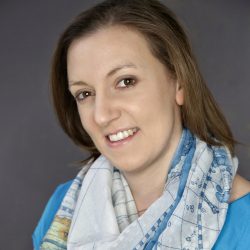P. Susan Jackson knows that she was one of the lucky ones.
“I was very fortunate to grow up with such abundance,” she told me. “Two of my great uncles were Rhodes scholars, sitting here with me at the table. And I thought this was normal.”
As a young person, she experienced the active intellect, vivid imagination, and deep, complex emotions that she now sees in so many of her clients at the Daimon Institute for the Highly Gifted. “I grew up in an environment where I could easily feed the creative impulses and multifaceted ideas swirling in my head,” she told me. “I grew up with models of brilliant, authentic, integrated, and highly functioning adults.”
Her father understood what it took to thrive wholly as a gifted person. He had a swimming pool in his backyard, and he would invite professional colleagues over to swim laps. It didn’t matter that he wasn’t a skilled swimmer himself (in telling me this story, Jackson laughed as she imitated his flailing backstroke). Nor was he particularly health-conscious. He simply understood that people like him, and his family, and his community, needed movement.
In the first part of our interview, Jackson and I discussed the importance of becoming grounded in the body. Her family guided her to this understanding by supporting her as a swimmer, a decade-long commitment she began at age five. Dedicating herself to the sport and reaping its physical benefits, she told me, made a big difference in her quality of life.
“It was deeply liberating to get into the physical body,” she recalled. “I allowed myself to disentangle from that sense that I needed to be in control in my mind all the time. I discovered a whole other way of relating to myself in the water.” Moreover, becoming a competitive swimmer in high school demanded self-discipline that she may not have developed if she had devoted herself solely to the intellectual pursuits that came more naturally. “And that’s important to me,” she said. “Self-discipline is a crucial part of growth and development. I learned to self-regulate, emotionally and physically, very early in life. I believe this saved me; it was certainly a prophylactic protecting me from serious depression and anxiety.”
How different would her life have been if she had been born into a community that looked at her and said, well, Sue’s bright. She’ll be just fine. She doesn’t need our help.
The Life Trajectory of a Lonely Bright Kid
Before we continue, I would like to note that I understand the word “gifted” comes with some baggage. Perhaps you figure that Jackson and her clients have data to back up her use here, but as a reader who has just stumbled across this site, you may doubt it applies to you. That’s going to be alienating. Even if you think it might technically apply, few people are comfortable dubbing themselves highly gifted, let alone exceptionally or profoundly. Worse still, I’ve encountered a few people who really are full of themselves who use it—people I suspect have been wounded and use it as a shield—and I know most of our readers won’t want to come across like that. Besides, you never became an eminent creator, so we can’t possibly be talking about you, right?
If this is you, I would like to invite you to put the term aside (but please do not swap it out for something pathological). Try “intellectually intense” if you like. “Rainforest mind” is another good one, courtesy of Paula Prober, another therapist who works with this population. “A constant overthinker” will work if you really need a little self-deprecation. Don’t waste energy thinking about qualifiers like “highly” or “profoundly” and just see if what we talk about otherwise is relatable to you.
If you hate the term gifted, I invite you to put the term aside (but please do not swap it out for something pathological). Try “intellectually intense” if you like. “A constant overthinker” will work if you really need a little self-deprecation.
Personally, as I talked with Jackson, I had in mind someone never labeled “gifted” but whose story certainly fits. This was my own dad, Keith Mannisto. You could say that I really founded Third Factor for him. He was clearly extremely bright (he rewired the electricity in his parents’ house when he was in elementary school) though they didn’t talk about things like “giftedness” when he was a kid in the 1950s and 60s.
He also grew up in poverty. He managed to find resources to build a working science lab in his backyard—it was for the Electromagnetic Research Society, a science club which he founded—but he wasn’t in touch with anyone who knew how to guide him to find resources beyond what he could get via mail-order. (Apparently you could get some pretty crazy stuff in the mail back in the 1960s.)

Nor was anyone coaching him to overcome his weaknesses. Hearing Jackson talk about her swimming, I recalled how my dad was identified as a budding star gymnast, but no adult in his family took that opportunity seriously; or perhaps his parents, a nurse and a musician with three other kids, were too busy to support him in that endeavor. So he, in turn, didn’t take it seriously and ultimately dropped it, to his coach’s great dismay.
Keith is smart; he’ll be fine, they said about him. And from the perspective of a family with few financial resources, maybe he was fine. But as he reached retirement age, he had significant sadness over the paths he failed to follow because he didn’t know at the time what he should have done.
Paying Fortune Forward
Like many successful gifted people who recognize that it wasn’t just an IQ score that got them where they are, Jackson clearly feels driven to pay forward what she has been given in life.
“I am very interested in folks who have been in very disadvantaged situations,” she told me. A colleague once compared her to Professor X, the character in The X-Men who founds an institute to help youth with abilities that are not understood anywhere else. “I developed the Integral Practice for the Gifted™ [because] there was no understanding of how the extraordinary intellect, complex emotionality, [and] signature strong sense of Self dynamically interact with other dimensions of the profoundly gifted like kinesthetic and communicative capacity, ideas of the good, spirituality, creativity, gender, sexuality and more,” she said. Even when disadvantaged children make it into programs for gifted youth, the programs tend to focus exclusively on developing their extraordinary academic talent while neglecting things like physical activity—the very sort of education Jackson credited with protecting her from anxiety and depression.
She also knows that socioeconomic status has a big impact on whether those needs get addressed. She once did a presentation at the annual conference of an organization called Supporting the Emotional Needs of the Gifted (SENG) on poverty and giftedness. “I come from quite the opposite, so people were surprised,” she said. “But profound giftedness, high developmental potential—they exist at any socioeconomic level in any country.”
Profound giftedness, high developmental potential—they exist at any socioeconomic level in any country.
P. Susan Jackson
Jackson has continued this aspect of her work in her recent research. She shared the story of one participant, a highly decorated professional football player who grew up in poverty and violence. Though he would eventually complete a university degree with honors and pursue deep study in multiple areas of interest, he passed through his school years unrecognized and unsupported in his exceptional intellectual, creative, and musical gifts. For his family, merely putting food on the table was a challenge. “I remember telling my mom I wasn’t that hungry and then eating dirt, and it did not taste that bad to me,” he told Jackson. Meanwhile, the social dynamic at his school left no place for developing intellectual gifts. “Being smart did not line up in the Venn diagram with the social necessity of being cool, in the environment I grew up in,” he told her.

Lack of access to the financial resources one needs to develop one’s talents compounds another problem faced by gifted and intense people up and down the socioeconomic ladder: lack of community. “It’s very difficult for the highly gifted to feel true communion—that reflection of your deepest core, your moment to moment experiencing of life,” Jackson said. Highly gifted, highly intense people are outliers. Struggling to find others who get you comes with the territory.
If healthy physicality is the key to strong roots, then healthy human connection is the key to blossoms. “Sometimes it’s just the great good luck of coming into contact with people,” Jackson added.
If healthy physicality is the key to strong roots, then healthy human connection is the key to blossoms. “Sometimes it’s just the great good luck of coming into contact with people,” Jackson added. “It has to be someone who can really reflect your inner core, in an invitational way—Come with me, we’ll grow together, I’ll see you along way.”
When You Can’t Find Connection
Through her work with outlier clients, Jackson sees over and over how isolation leads to anxiety. She described a pair of compensatory strategies that she often sees in clients who have never felt seen, let alone mirrored by another.
Some go too far in efforts to fit in with others and maintain their approval. Jackson calls this hyper-communion. “It’s almost enmeshment,” she explained. “It can happen with a parent, a partner, even with a group. They are seeking communion so greatly that they will bend who they are. And then they lose themselves.”

Others go the opposite direction and become what Jackson called hyper-agentic. She described one young boy who positively lit up at the chance to learn things. His classmates, however, were turned off by his intensities. He had a deep interest in geography that they did not share at all. “The boy was so hurt, he became hyper-agentic,” she said. “You couldn’t have a conversation with him where he wouldn’t start detailing the countries of the world, their issues, their capitals.” This response, Jackson suggested, was not an inborn flaw, but a response to living in an environment where no one took an interest in something important to him. So, he followed the only path he saw available and took his joy into his own hands.
For this population, life will likely require navigating between these two extremes. Hey, it’s good to defer sometimes to what others want. It’s also important to carve out time and space for your own unusual interests. It’s like walking a balancing beam: most will stumble toward one side or the other at some point in their lives, especially early on, before we’ve embraced the fact that this is what we must do, and then commit to practicing it.
To those who still feel lost, Jackson offers this advice: “Avoid identifying with so-called pathology and seek communion with others while feeding your innermost core.”
“Most profoundly gifted adults don’t get out of childhood or adolescence without some disillusionment about that great middle ground that we have to exist in,” Jackson said. To those who still feel lost, she offers this advice: “Avoid identifying with so-called pathology and seek communion with others while feeding your innermost core.”
The challenge, of course, is learning to balance when you did not get the necessary practice as a child. Okay, so you may not have learned grace—but this is not to say that you can’t learn it. Instead of stumbling into hyper-agency or hyper-communion, you can instead navigate that interpersonal space with more conscious give and take, remembering, as Jackson put it, that “sometimes I’m bending toward you; sometimes you’re bending toward me.”
When Youthful Luck Doesn’t Hold
It’s worth noting that while having good companions early in life is definitely preferable to the alternative, this good luck may or may not hold. A pleasantly paved road can suddenly turn rocky. When the companions some were lucky enough to find in childhood all go their separate ways, normalcy may rear its ugly head.
This is what happened to Third Factor contributor (and my husband) Maxwell Olin Massa, whose classmates from his high school magnet have mostly found fulfilling paths that allow them to use their unusual minds and connect with others like them, while he developed a skill set—foreign language and area expertise—for which it has been harder to find a satisfying home. This is a long story (and one Max may write up for an upcoming issue); suffice it for now to say that it’s hard to find people who want to talk about China at the level that interests him.

Now, as I shared with Jackson, he feels somewhat lost—let down by a world that had affirmed him socially and intellectually as a younger person. At times I’ve wished I had had his highly nurturing high school experience, but upon reflection, I think that if I had, I might have other struggles now.
“That is so difficult,” Jackson agreed. “There are all these different stages where you’re at risk of that—when you leave grad school or you move somewhere. We’re outliers; there’s not as many of us.”
This is a hard fact to face: an effort to find other adults with your shared interest can backfire, resulting instead in tremendous loneliness when they just don’t turn up. For those who are passionate about STEM, you might have better (but not perfect) odds of finding companionship through your employment; if you’re interested in the humanities, it’s tougher still. Jackson told me she has noticed this as well: while the world recognizes intellectual capacity when it’s channeled in STEM, those with other unusual talents can struggle to find the right environment for them to blossom. Even if they’re lucky enough in youth to find a special school, that’s no guarantee that they’ll find a place to bloom in adulthood.
What We Share—and What We Don’t
Compounding the challenge of community for this population is the tremendous diversity contained within it. Expert and amateur observers have noted that highly gifted people have a multitude of different interests. That, however, means that an individual’s passion is not all that likely to overlap with those of the similarly-wired people they encounter. When a person learns about “giftedness” as a positive, non-pathological framework for why they’re different and then get their hopes up—especially if they’re looking for a very specific form of intellectual communion—this can be a major disappointment.
To such people, Jackson offers an alternative perspective: the specifics of their interests will not necessarily be where highly gifted people find communion. “There may not be common experiences,” Jackson explained, “but there will be a common capacity to appreciate each other.” Sometimes her clients share these idiosyncrasies in her waiting room, feeling mirrored by others even as their interests are wildly different. “I very much encourage the building of idiosyncrasies in anyone, but especially in this population,” she added. “There are no two people who are alike.”
You May Yet Bloom
There’s no getting around the fact that being unusual comes with challenges. The Internet’s capacity to connect unusual people with others like them has been widely observed, and Jackson suggests that it has a role to play here. “I think right now with the Internet, with various groups—with really taking TPD [i.e., the theory of positive disintegration] and pushing it forward—we should be able to encourage these connections. That will go a long way toward helping these individuals with their personal resiliency,” she said.
I very much encourage the building of idiosyncrasies in anyone, but especially in this population. There are no two people who are alike.
P. Susan Jackson
“I’m also hoping groups like yours, Third Factor, are inviting people to a different interpretation of their experience,” she added.
That’s certainly our goal. We exist not to help people who are, say, successful STEM professionals, or famous authors, or business tycoons. Those people don’t need what we’re offering. What we want to do here at Third Factor is help orchids who were stuck in pots in Alaskan office buildings to figure out what they’re missing and finally put out the blooms they’ve dreamed of.

To do that, says Jackson, the important thing is to keep searching for what you need. “I want to emphasize one thing,” she told me, “and that is for all the folks out there to not settle.” She urges our readers to reject simplistic models of themselves, whether these come from credentialed experts or pejorative stereotypes about brainy nerds. Unfortunately, we live in “a world that is perhaps uncomfortable with the tremendous life force that is inherent in this population,” as she put it. But in the end, it is up to each individual to break free from this framework.
“We’re meant to be pulsing, alive, joyous, connected,” she said. “We’re not meant to be truncated, to be diminished.”
After all, as difficult as it may be in those Alaskan cubicles, orchids are meant to bloom.




